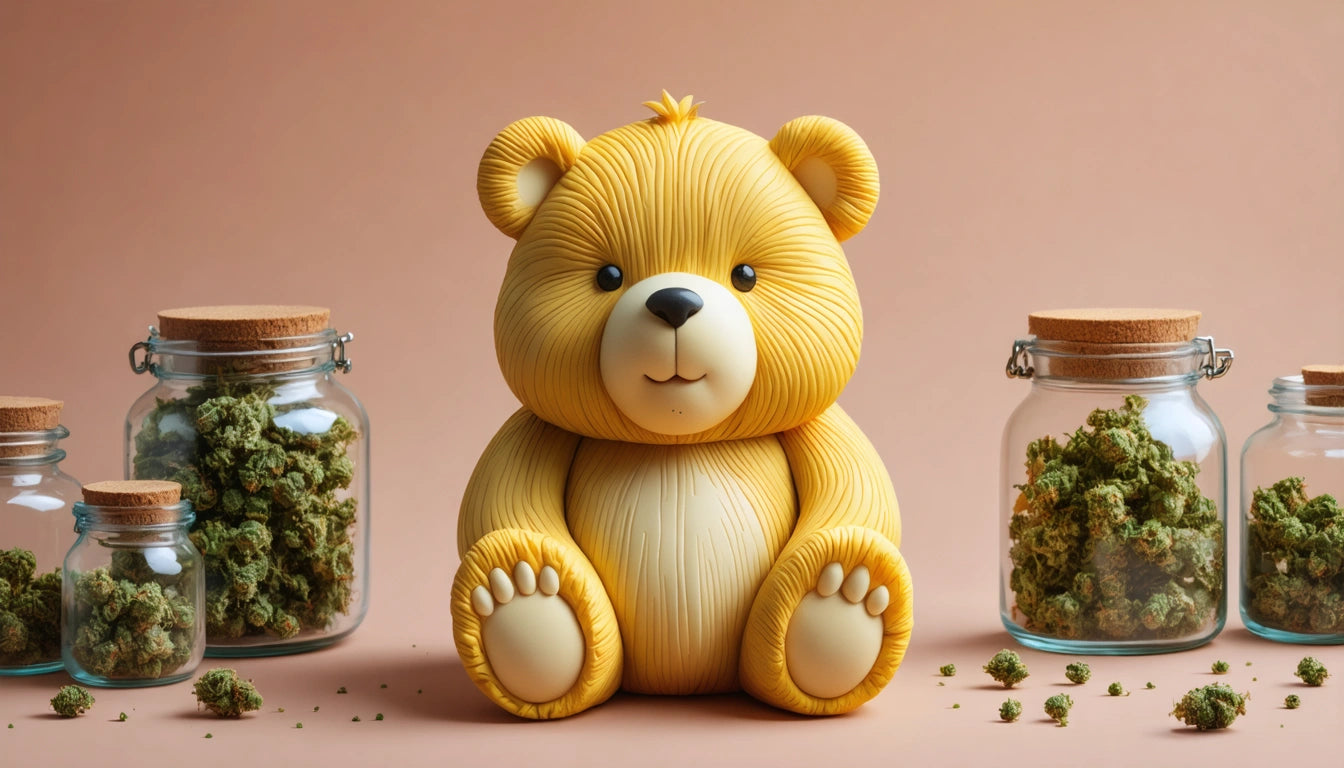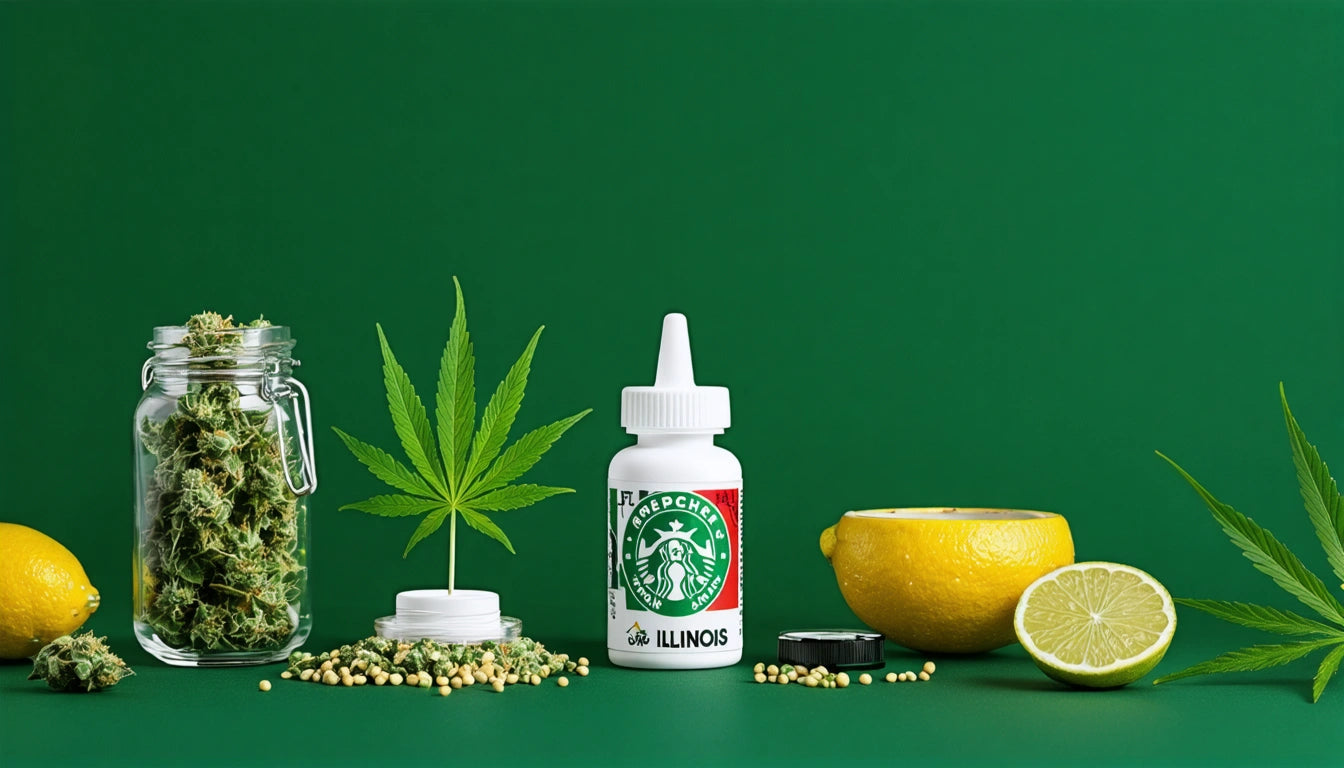Exploring the Connection Between Care Bears and Cannabis: Myths and Facts
The intersection of nostalgic childhood imagery and cannabis culture has created interesting marketing phenomena, including the cannabis care bear concept. As cannabis legalization expands across regions, brands increasingly use playful, familiar imagery to appeal to consumers. This article explores the origins, cultural significance, and concerns surrounding weed bear imagery and the broader implications for cannabis branding.
Origins of Cannabis Care Bear Imagery
The original Care Bears, created in the 1980s for greeting cards before expanding into toys and animated content, featured colorful bears with distinctive symbols on their bellies representing different emotions and personalities. The cannabis care bear concept emerged as part of cannabis culture's tendency to appropriate and transform family-friendly imagery into adult-oriented content.
This transformation typically involves replacing the traditional belly symbols with cannabis leaves, smoking accessories, or other cannabis-related imagery. These unofficial parodies began appearing on merchandise in cannabis-friendly states and online marketplaces, despite having no official connection to the original Care Bears intellectual property.
Pop Culture References and Cannabis Mascots
Cannabis culture has a long history of adopting and adapting mainstream characters as unofficial mascots. Cannabis terminology and cultural references often include playful nods to recognizable characters, creating a sense of community and shared understanding among consumers.
The weed care bear represents just one example of this trend, alongside other adapted characters like stoner versions of cartoon characters or reimagined corporate mascots. These adaptations serve multiple purposes:
- Creating recognizable branding that resonates with consumers
- Adding an element of nostalgia that appeals to adult consumers
- Softening the perception of cannabis through familiar, friendly imagery
- Distinguishing products in an increasingly crowded marketplace
Are Bears Attracted to Cannabis?
A common question that arises when discussing bears and cannabis is whether wild bears are actually attracted to marijuana plants. This misconception likely stems from the playful association between bears and cannabis in popular culture rather than biological reality.
Wildlife biologists have found little evidence suggesting bears have any particular attraction to cannabis plants. Bears are opportunistic omnivores with diets primarily consisting of berries, nuts, insects, fish, and occasionally larger prey. While bears might investigate cannabis grows as they would any other vegetation, there's no scientific basis for claiming they're specifically attracted to cannabis.
According to research on cannabis plants and their environmental interactions, most wild animals don't show preference for cannabis over other vegetation, though some pests may target the plants for various reasons.
Safety Considerations for Cannabis Products
The use of cartoonish bear imagery on cannabis products raises important safety concerns, particularly regarding appeal to children. Regulators in legal cannabis markets have increasingly restricted packaging that might attract underage interest.
To address these concerns, our child-resistant packaging options provide essential protection while maintaining compliance with regulations across different jurisdictions. These specialized containers help ensure cannabis products remain secure and inaccessible to children, regardless of the branding approach.
Most legal cannabis markets now have strict regulations prohibiting:
- Cartoon characters or imagery that might appeal to children
- Packaging resembling candy or other child-friendly products
- Bright colors or graphics designed to attract younger audiences
- Mascots or characters that might be confused with children's entertainment
Weed Bear Merchandise and Branding
Despite regulatory concerns, weed bear imagery continues to appear on merchandise not directly related to cannabis products themselves. T-shirts, stickers, posters, and other accessories featuring cannabis care bear designs remain popular among certain consumer segments.
For cannabis businesses looking to develop distinctive branding, industry best practices suggest focusing on original characters and designs rather than adapting existing intellectual property. This approach not only avoids potential legal issues but also allows for the development of authentic brand identities.
Some cannabis brands have successfully created original mascots that capture the playful spirit of characters like care bears without directly appropriating protected imagery. These original creations often become valuable brand assets that distinguish products in the marketplace.
Future of Cannabis Mascots and Family-Friendly Imagery
As the cannabis industry matures and becomes more mainstream, the approach to branding and mascots continues to evolve. The tension between playful marketing and responsible business practices remains a central challenge for cannabis companies.
Forward-thinking cannabis brands are developing more sophisticated visual identities that appeal to adult consumers without relying on imagery that might attract children or infringe on existing intellectual property. This evolution reflects the industry's growing professionalism and recognition of its social responsibilities.
According to industry experts, successful cannabis branding in the future will likely focus on:
- Original characters and mascots designed specifically for cannabis brands
- Sophisticated design elements that appeal to adult sensibilities
- Clear differentiation from children's products and entertainment
- Responsible messaging that acknowledges the adult nature of cannabis products
While the cannabis care bear concept may persist as part of cannabis culture, its commercial applications will likely become more limited as regulations tighten and the industry continues its path toward mainstream acceptance and responsible marketing practices.











Leave a comment
All comments are moderated before being published.
This site is protected by hCaptcha and the hCaptcha Privacy Policy and Terms of Service apply.